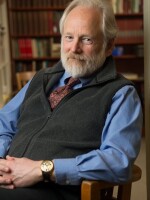The late William McNeill, one of our greatest world historians, once told me that he only understood how hard it was to teach history when he realized his students no longer had any connection with the central historical event of his life – the Great Depression. “We no longer shared the frame of reference that comes from common experience”, he said, “Much of what I took for granted – the references I made, the assumptions I believed we shared – was gone. There began the real work of trying to convey the reality of something pivotal to me that, to them, had all the relevance of the Thirty Years War.”
I had the same feeling when I first encountered students with no memory of Vietnam. Today, my son teaches 9th-graders born after 9/11, which was, as it happens, his first day of high school.
The moment that one generation’s vivid memory becomes another’s ancient history is central to the tide of human events. That seems clear today as we consider the rise of nationalism – some call it “tribalism” – around the world. The Philippines, China, Russia, Turkey, Austria, France, the United Kingdom and, of course, the U.S. are abandoning post World War II globalism to embrace an inward looking, defensive approach favoring exclusion over inclusion; homogeneity over diversity; and isolation over engagement.
There are many reasons for this, but a central one is that most people are too young to remember the reason for post-World War II globalism: economic and political nationalism that led to the Great Depression and World War. As long as people retained a visceral memory of those grim experiences, they maintained commitments to national and international mechanisms to avoid a repeat. But, as memory recedes, so does policy.
Now this can go both ways. After all, memory of mass slaughter in World War I drove western democracies to disastrous policies of appeasement in the 1930’s. Desperate attempts to avoid war in fact ensured it. So there’s a limit to the notion that failing to learn from the past leads to repeating mistakes. Too often we learn from past mistakes how to make new ones.
Still, we might want to look back and ask why we embraced globalism and whether complete rejection of that approach to human life is justified.





